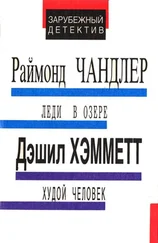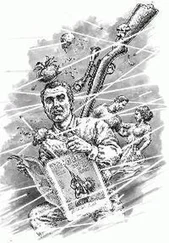Аврам Дэвидсон - Peregrine - primus
Здесь есть возможность читать онлайн «Аврам Дэвидсон - Peregrine - primus» весь текст электронной книги совершенно бесплатно (целиком полную версию без сокращений). В некоторых случаях можно слушать аудио, скачать через торрент в формате fb2 и присутствует краткое содержание. Год выпуска: 1971, ISBN: 1971, Издательство: New York : Walker, Жанр: sf_all, на английском языке. Описание произведения, (предисловие) а так же отзывы посетителей доступны на портале библиотеки ЛибКат.
- Название:Peregrine : primus
- Автор:
- Издательство:New York : Walker
- Жанр:
- Год:1971
- ISBN:0802755461
- Рейтинг книги:5 / 5. Голосов: 1
-
Избранное:Добавить в избранное
- Отзывы:
-
Ваша оценка:
- 100
- 1
- 2
- 3
- 4
- 5
Peregrine : primus: краткое содержание, описание и аннотация
Предлагаем к чтению аннотацию, описание, краткое содержание или предисловие (зависит от того, что написал сам автор книги «Peregrine : primus»). Если вы не нашли необходимую информацию о книге — напишите в комментариях, мы постараемся отыскать её.
Peregrine : primus — читать онлайн бесплатно полную книгу (весь текст) целиком
Ниже представлен текст книги, разбитый по страницам. Система сохранения места последней прочитанной страницы, позволяет с удобством читать онлайн бесплатно книгу «Peregrine : primus», без необходимости каждый раз заново искать на чём Вы остановились. Поставьте закладку, и сможете в любой момент перейти на страницу, на которой закончили чтение.
Интервал:
Закладка:
Deacon Septimus was on in years, and his ear was not what it was, and neither was his memory; instead of turning left as directed, he turned right. Until the last decade he had always turned right at this point anyway, for that way led the way to what for most of his long lifetime had always been “the docks.” It was all one to most of the others, and those who were aware of the mistake merely snickered and nudged each other.
“Silly old Sep has tooken the wrong turn!” they whispered. “Old arch-priest, he won’t half have the wind up, as he find out, not half, hee hee!”
The elder who was languidly plonking the semantron was a foreigner by birth and upbringing, whom some long-forgotten upheaval in his native land of Egypt had swept hither and deposited; he had not in all his years of residence learned his way about the City, or much else about it and its ways and customs.
Consequently, when the procession, followed with varying degrees of interest or boredom by the invariable small throng of laymen, pietists and simple idlers, reached the old docks; and reached them just in time to observe that along the long-dry bed of the channel rolled a rush of white-waved waters, bearing a ship where no ship had been borne for many years, they reacted in varying ways. The deacon somehow and suddenly conceived
the notion that something unusual was happening, no doubt connected somehow with the Vigil and the processions, and that he had forgotten what this was. However, he would never in a million years have admitted that his memory was failing. Instead, he lifted up his still-imposing voice and launched into a Te Deum. The Egyptian elder, who had, in his incredibly distant and unregenerative youth been a worshipper of Isis, widened his rheumy eyes on beholding what he assumed to be Isis Herself (it was actually the Matron Eudoxia, clad in a garment from her native Nubia, where Egyptian styles many years old were long in going out of fashion) at the prow of the vessel. It was evident to him that Isis had somehow been adapted into the Church—an opinion which he had long been of himself, to the cause of much difficulty at home long ago—and now he paused not to reason as to details, but began to beat upon his far-sounding bell-board with might and main. The arch-priest arrived at just this moment, burdened with reproof at the wrong turning, but on observing something going on of which everyone but he seemed to be aware, he promptly stoked up the thurible with fresh incense and soon thick choking clouds of it were drifting all about, contributing nothing to the clarity of the scene and its events, but much to its air of mystery and authority.
The old channel just below the very end of the old dock had for some years now been used as a sort of public dump and into the vast and musty pile of rubbish the Homoiousios dug her nose so firmly that not all the long-pent and gurgling waters of the river could dislodge her. Aboard, Augustus the Penurious, seeing a crowd ... a priest ... a procession . . . hearing the same song which had been sung at his coronation ... at once began to scrabble in his baggage for his purple and his crown. With a curt, “Well done, General,” he handed these to Peregrine. “Hold these till ready—” and stepped ashore onto a group of pilings.
“My fellow-citizens,” he began.
At these familiar words, lending for the first time an element of the understandable to the scene, the crowd let out a cheer. At the equally familiar, “O Senate and People of Rome!” they cheered again—particularly as they recognized aboard the familiar and friendly figure of P.C.D.B. Darlangius P. G., president of theij Senate; who waved a hand at them, which held a
wine-cup.
“I am pleased at your welcome of your new Caesar,” continued Augustus, “and as you are here to hear what I have to say about my deep interest in your welfare, I shall lose no time in telling them to you. Take whatever work Providence or the Authorities—same thing, same thing—are pleased to place you in, work hard and productively, spend less than you earn, save your money, never invest more than twenty percent in any one thing, pay your taxes promptly, go to church three times a day and after meals, visit only government-inspected and -licensed brothels, avoid heresy and other damnable doctrines, and thus you will find true happiness—”
The crowd cheered lustily and then began a chant of, “Toss it off! Toss it off!”
Few phrases could have been more immediately understandable to Augustus the Penurious, and he unstoppled the strings of his nearest moneybags: but he was, after all, not called Stingy Gus for nothing: and a strange and perhaps involuntary shyness or paralysis took hold of him at this moment. In his ear he heard the friendly Senator murmur, “Don’t stop now, for Pity’s sake!” —but he could not do otherwise than stop.
“Toss it OFF! Toss it OFF!" the cry continued, and was now interspersed with a rhythmical clapping sound. Still Gus stood there, with his hands plunged to the wrists in bezants. With only a small sigh, then, Senator D. set down his wine-cup and plunged his own hands into the sagging sacks, and then, standing up, began to toss the contents ashore with great and wide-sweeping gestures. Six cohorts of troops arrived at this moment, and, on seeing the traditional gesture, and one which in their opinion had been insufficiently repeated of recent years, they at once stacked spears and began to elbow their way forward, pausing now and then to scrabble with the rest.
Augustus lost part of his paralysis and began to howl about his money. Peregrine said, “Here you are, then, sir. Imperial Scrip for the entire amount, redeemable at any Bursary.”
“Straight down there to your left, past the public micturarium.” said the Senator, giving him a friendly pat. Augustus gestured, staggered, went down, still clutching the parchment, and was lost to sight. The Senator was interested in the entire pageant which was taking place in front of his eyes. Owing to the
diligence with which he had been testing the ship’s wine supplies, with a view to assuring himself of their wholesomeness, he found that he was not entirely sure what the nature of the pageant was. But he felt that it, like all pageants, was and must be a good thing. Only one thing vaguely troubled him at this moment, wrapped as he was in an aura of good wine and good will; and that was that there seemed to be a slight chill in the air.
“Boy, hand me my head-piece and my cloak,” he said, absently to the figure at his elbow. This was Peregrine. To be involved in the civic and political affairs of Chiringirium was something he had not intended. It had in fact been his intention to by-pass the City afoot, as recommended. To C. Petronius Niger he had intended nothing whatsoever. But then came the capture of Claud, and there seemed no way to get him back from the hands of Black Pete save by prying loose the fingers of those hands. And so here they all were. His new friend was asking for something—
Peregrine blinked, cleared his throat, cupped his hands to his lips, and shouted, “Ave! A ve! Ave! Ave . . .CAESAR!”
Everyone stopped whatever he was doing, looked up and looked nervously around. And Peregrine, draping the purple robe around his friend’s broad shoulders, and setting the diadem on his friend’s head, announced in tones loud and clear and utterly assured, “Proclaimed! Proclaimed is Publius Cato Decimus Brutus Darlangius Philipus Gordonius Caesar!”
Darlangius quite calmly reached up another fistful of bezants, tossed it in the direction of the most of the soldiers. And everyone shouted, “Hail Gordonius Caesar!”
The cohorts, having picked up what seemed to be the last of the bezants on the docks, knew well enough what the next step was. They stepped forward, placed their largest shield flat on the ground and hoisted the ample figure of the former President of the Senate on top of it; then they lifted it high. The throng cheered madly. The arch-priest turned and led the way back to the church in a thick and swirling cloud of incense, the choir singing happily and clutching their bezants. Darlangius Caesar bent slightly to one side, and said to Peregrine, “Well, my boy, it’s six blocks to the scene of my anointing and investment, and it’s six blocks the other way from Black Pete’s palace. We either make it or we don’t. Fortunately I have endowed several chan
Читать дальшеИнтервал:
Закладка:
Похожие книги на «Peregrine : primus»
Представляем Вашему вниманию похожие книги на «Peregrine : primus» списком для выбора. Мы отобрали схожую по названию и смыслу литературу в надежде предоставить читателям больше вариантов отыскать новые, интересные, ещё непрочитанные произведения.
Обсуждение, отзывы о книге «Peregrine : primus» и просто собственные мнения читателей. Оставьте ваши комментарии, напишите, что Вы думаете о произведении, его смысле или главных героях. Укажите что конкретно понравилось, а что нет, и почему Вы так считаете.






